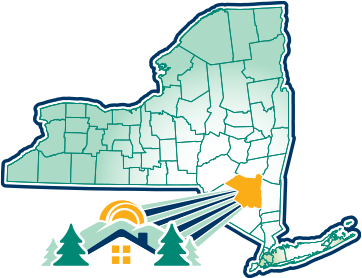Ellenville Housing Authority
Ellenville, New York
Our Mission
Ellenville Housing Authority is a federalized Public Housing Authority with a mission to provide decent and safe rental housing for eligible low-income families, the elderly, and persons with disabilities.
What We Do
The EHA manages several funded programs:
Applications are accepted for Public Housing and our Senior Housing units online ONLY.
Where We Are
Ellenville Housing Authority is nested in a valley in the beautiful Catskill Mountains in Ulster County. Our office and Multi-family complex are located at 10 Eastwood Avenue, Ellenville, NY. Our Senior Housing is located at 199 Canal Street, Ellenville, NY.

Serving the Town of
Wawarsing & the Village
of Ellenville, New York
of Ellenville, New York


